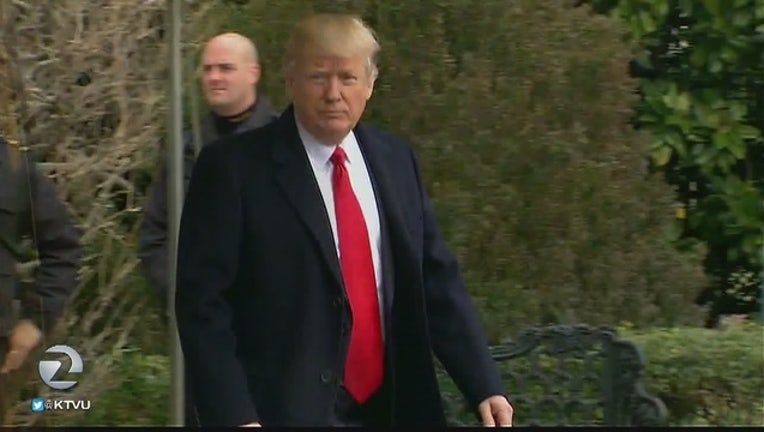Judge: Hawaii can proceed with filing of travel ban lawsuit

HONOLULU (AP) -- A federal judge in Honolulu said Wednesday that Hawaii can proceed with the filing of what would be the first lawsuit challenging President Donald Trump's revised travel ban.
U.S. District Judge Derrick Watson granted the state's request to continue with the case and set a hearing for March 15 -- the day before Trump's revised ban is due to go into effect.
Hawaii officials previously sued to stop Trump's initial travel ban but that suit was placed on hold by Watson amid legal challenges around the country.
On Tuesday night, a day after Trump's administration announced its new ban, attorneys for the state filed their proposed revision in federal court along with a motion asking that it be allowed to proceed.
Watson approved that motion and said the state will file the final lawsuit later Wednesday. The Hawaii attorney general's office did not provide further details on when the lawsuit would be filed.
The U.S. Department of Justice declined to comment on the pending litigation.
At the March 15 hearing, the judge will also hear arguments from the state on a motion to impose a temporary restraining order that would prevent the ban from taking place until the lawsuit has been resolved.
The lawsuit says the revised travel ban will harm the Muslim population of Hawaii as well as schools and employers.
The president's new order bars new visas for people from the six countries and temporarily shuts down America's refugee program, affecting would-be visitors and immigrants from Iran, Syria, Somalia, Sudan, Yemen and Libya.
Hawaii's complaint says it is suing to protect its residents, businesses and schools, as well as its "sovereignty against illegal actions of President Donald J. Trump and the federal government."
Imam Ismail Elshikh of the Muslim Association of Hawaii became a plaintiff in the state's initial lawsuit. His mother-in-law is a Syrian national living in that country.
Trump's "executive order inflicts a grave injury on Muslims in Hawaii, including Dr. Elshikh, his family, and members of his mosque," the lawsuit states.
Hawaii has hired a Washington, D.C., law firm to help with the lawsuit. Josh Wisch, a spokesman for the state attorney general's office, has said the firm is giving the state a 50 percent discount on its services.
"This new executive order is nothing more than Muslim Ban 2.0," Hawaii Attorney General Douglas Chin said in a statement Monday. "Under the pretense of national security, it still targets immigrants and refugees."
------
Follow Jennifer Sinco Kelleher at http://www.twitter.com/JenHapa. Her work can be found at http://bigstory.ap.org/content/jennifer-sinco-kelleher.

